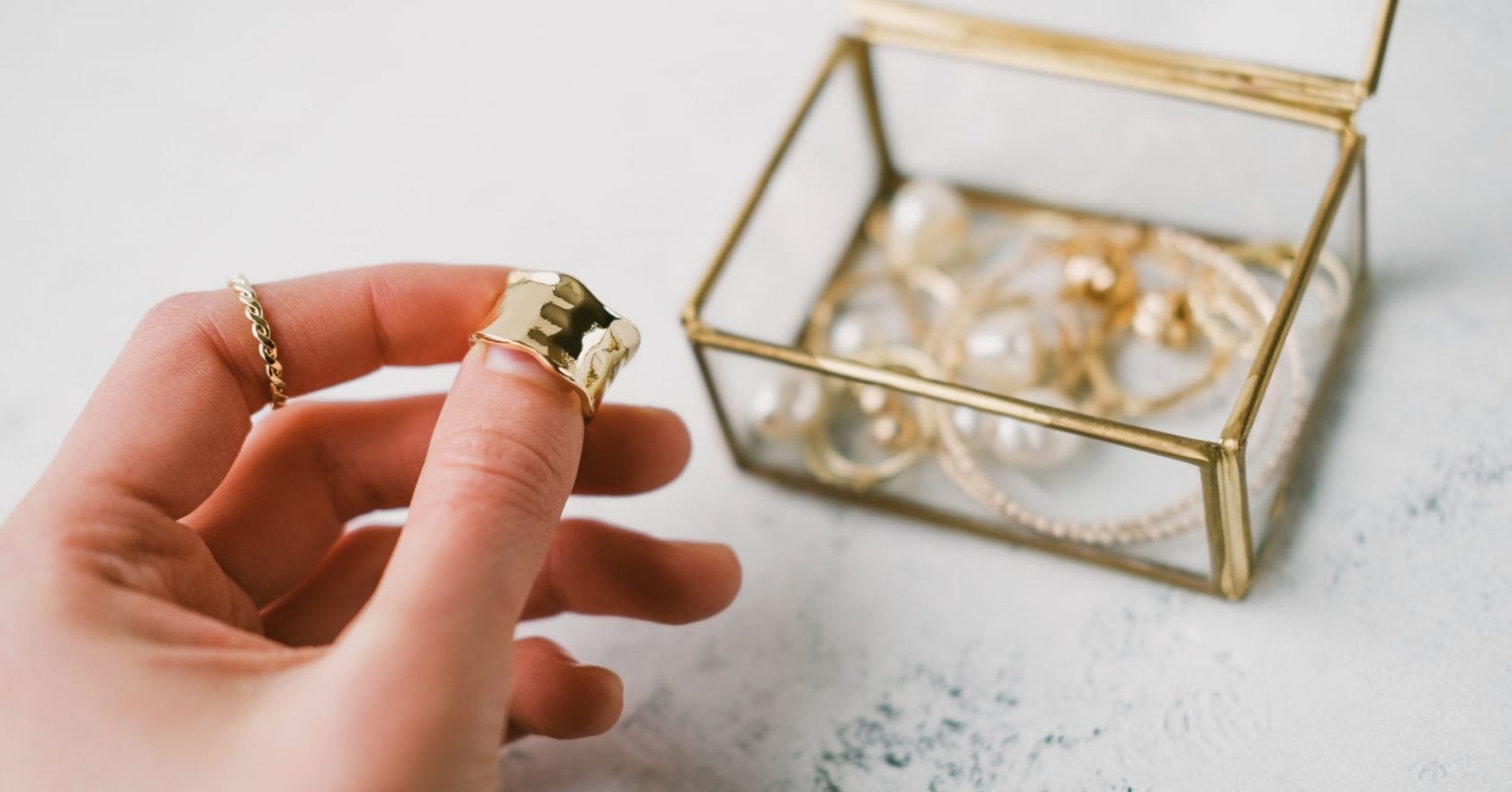
Anxiety rings are everywhere on TikTok, but do they actually work? We asked an expert to explain.
Feeling anxious is never ideal, but it’s especially difficult when you’re in the middle of something, like your morning commute or a meeting in the office.
In these moments, you want something that’s going to help you relieve anxiety on the spot – and that’s where the concept of an ‘anxiety ring’ comes in.
A piece of jewellery akin to a fidget spinner, anxiety rings are particularly popular on TikTok, where they’ve racked up 69.3 million views. But what are they, and how do they work? We asked an expert to explain all.
What is an anxiety ring?
Anxiety rings may be trending right now, but they’re believed to be inspired by ancient Tibetan Buddhist meditation traditions, which make use of spinning ‘prayer wheels’ to pray and calm the body and mind.
While you can buy rings inscribed with Tibetan script, most of the rings on sale these days are much simpler in nature, usually made up of a larger outer ring that spins around a small, unattached inner ring, or a series of beads which move.
Do anxiety rings work to relieve anxiety?
While there’s no research to show that anxiety rings can help to relieve anxiety in the long term, they can be a great way to shake off anxious thoughts in the moment.
“There is ample evidence to show that directing your attention away from anxious thoughts towards an object, such as a ring, can provide relief in the short term,” explains the chartered psychologist Catherine Hallissey.
“People have been using jewellery for this for many years, long before it was popularised by TikTok.”
How do anxiety rings work?
By forcing you to focus on something outside of your body, anxiety rings help to distract you from any anxious thoughts and redirect your attention elsewhere.
“While anxiety rings do not treat the cause of anxiety, they can be used to relieve anxiety by anchoring you to the present moment,” Hallissey explains.
“By focusing your attention on the ring and using your senses to look at and feel it as you move it on your finger, you’re able to direct your attention away from any anxious thoughts. This is a type of grounding technique which is commonly used to relieve anxiety.”
Are there other ways to practice grounding?
Yes! You don’t need to buy a ring to practice grounding if you don’t fancy it – there’s actually a really simple (and free) way to do it, too.
“Another type of grounding strategy used to relieve anxiety is the simple yet powerful 5-4-3-2-1 grounding method,” Hallissey says.
“To practice this all you need to do is focus your attention on five things you can see, four things you can touch, three things you can hear, two things you can smell and one thing you can taste.”
What other benefits can anxiety rings offer?
While the main benefit of an anxiety ring is its ability to help ground you in moments of high stress and anxiety, anxiety rings can also provide comfort in other ways.
For example, Hallissey explains: “For some people, wearing the ring may provide a level of comfort simply by knowing it’s there. The beauty of anxiety rings is that they are affordable and can be used as a grounding strategy anytime, anywhere.”
Anxiety rings can also be a helpful way to distract yourself if you struggle with skin picking (particularly on your thumbs), as they give you something to do to replace that behaviour.
Where to buy anxiety rings
You don’t need to buy an anxiety ring in order to reap the benefits of grounding – but if you fancy adding another tool to your toolkit, then there are plenty of different anxiety rings available to buy. Here are just a few of our favourites.
If you, or someone you know, is struggling with their mental health or wellbeing, you can find support and resources on the mental health charity Mind’s website and NHS Every Mind Matters or access the NHS’ guide to local mental health helplines and organisations here.
If you are struggling, you can also ask your GP for a referral to NHS Talking Therapies, or you can self-refer.
You can also call the Samaritans in the UK on 116 123 or email [email protected] for confidential support.
Images: Getty/Suppliers
Source: Read Full Article